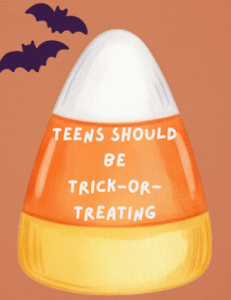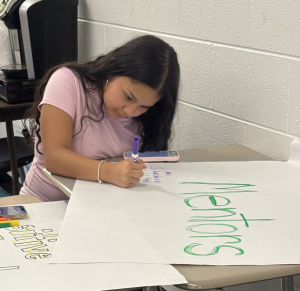Seasonal Affective Disorder (SAD)
Feb 1, 2021
Seasonal Affective Disorder (SAD) is described as recurring episodes of depression that are caused by a change in the season. Most cases occur during the winter seasons although it is not limited to. SAD is estimated to affect approximately 10 million people a year in the United States.
The exact causes of SAD are unknown, however, there is research that suggests it is caused by a decrease in the amount of sunlight in the winter months. This change in the amount of sunlight can have an impact on your biological clock. This can result in feelings of sleepiness and exhaustion which may lead to depression. The decrease in Vitamin D that your body absorbs from sunlight can also disturb the chemicals in your brain.
“ A drop in serotonin, a brain chemical (neurotransmitter) that affects mood, might play a role in SAD. Reduced sunlight can cause a drop in serotonin that may trigger depression… The change in season can disrupt the balance of the body’s level of melatonin, which plays a role in sleep patterns and mood,” stated research done at the Mayo Clinic.
In most cases treatment is easy. Light therapy, talk therapy and medication are all very effective for reducing the symptoms.
Light therapy is the cheapest form of treatment. It involves resting in front of a light designed to filter out the harmful UV rays to restore your biological clock.
In an article written about light therapy by the Mayo Clinic, “light therapy is thought to affect brain chemicals linked to mood and sleep, easing SAD symptoms. Using a light therapy box may also help with other types of depression, sleep disorders and other conditions.”
Students may feel the effects of SAD more with the added stress of school. After Christmas time is a common time to start feeling the effects of SAD. Coincidentally this is when the spring semester begins too. With the mental state of seasonal affective disorder and the workload of school, it’s enough for negative emotions to double down and really have a negative impact on students.
“Feeling down or worried happens to people of all ages, but when those feelings get in the way of your everyday life, you might need extra help. If your grades drop significantly, you can’t face beneficial social activities, you’re using alcohol or drugs to cope, or you‘re having any thoughts of harming yourself or others, consider seeking therapy or treatment,” said an article about students dealing with depression by Talk Space.






